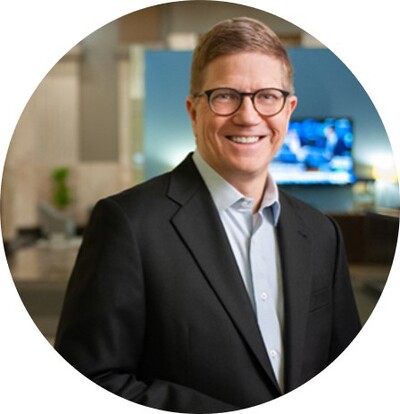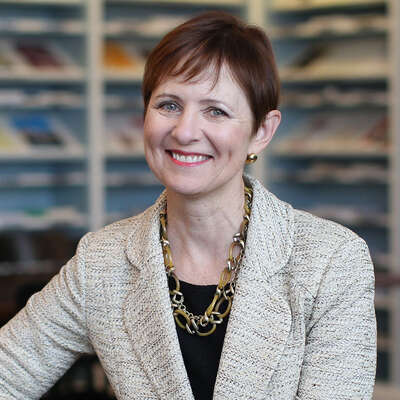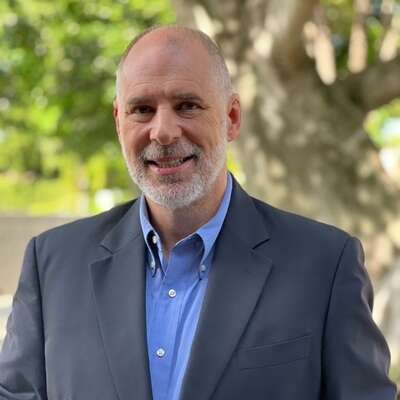
Building Tomorrow is a curated series offering exclusive one-on-one discussions with prominent executives across the real estate spectrum. Through a refined lens, each installment unpacks trends, challenges and exemplary leadership strategies steering the trajectory of specific segments within the real estate landscape, offering a concise yet comprehensive understanding of market dynamics.
This interview features Greg Zimmerman, Executive Vice President and Chief Investment Officer at EPR Properties. Part two of three explores EPR Properties' business model, highlights flexibility in investment structures, commitment to supporting experiential businesses, conservative underwriting practices, robust asset management capabilities, and experienced team, all contributing to its resilience and value proposition in the real estate market. In parts one and three, we discuss experiential real estate, EPR’s wide array of investment prospects, and leadership.
Part II: The Business Model
Boyden - What does a typical deal look like?
Zimmerman - We’re a triple-net REIT, so our preferred structure is a long-term lease. We buy the property, then lease it back to the operator, typically for a 15-20 year term with renewal options. We’re looking for stable rents with escalators throughout the term. That’s how we grow our net operating income. Triple net just means the operator is responsible for everything: insurance, taxes, maintenance, and we’re responsible for collecting rent. And that’s what our investors want. They want a stable cash flow they can count on year after year.
We generally like to see a proof of concept first. An example of that is Top Golf. There were three Top Golfs in existence before we invested in them. We needed to understand the business and underwrite them properly. We’re very granular in underwriting cash flows.
Boyden – And COVID disrupted that stable cash flow.
Zimmerman – Yes. 100% of our tenants were closed, and a lot of them couldn’t pay rent. But we worked with them on the mutual challenge of COVID and eventually collected $150 million in deferred rent – while strengthening our relationships with them.
Boyden – Back to deal structure, are you flexible?
Zimmerman – Sure, we’re open to other structures. We try to be nimble. We have some mortgages that look like leases if the counterparty needs it for tax or other reasons. Back to the question of development deals, we look for a healthy balance of buying in-place cash flow versus investing in build-to-suits or additions to existing properties. And that’s for a couple of reasons. One, just to balance risk, we want to make sure we have underwritable cash flow. Development projects of any kind are going to be riskier, so we’re going to get a higher return on those. Even for someone who is doing it repeatedly, like Top Golf, there’s always the risk of construction prices going up and other unforeseen events.

Boyden – How do you grow?
Zimmerman - For operators like Top Golf, with whom we are comfortable, and they’ve performed well, we try to get what we call a relationship agreement. We will obtain rights for a certain number of stores in the future that we can finance. That provides a lot of clarity for the counterparty, who wants to grow, because they don’t have to go to another bank, another loan committee, with different terms. We have an existing lease form; we generally know what the cap rate is. It makes it easier. We’ve done that with Top Golf, we’ve done that with Andretti Karting and others. It’s something our operators value in us. Once they see that, they able to develop new properties more easily and we can keep investing. To be clear, we’re not a developer. The tenant is going to get entitlements, they’re going to arrange construction, they are at risk for any over-runs. They can think of us as a construction lender, as a typical bank would be.
Boyden - In comparing yourselves to other triple net lessors and others in the experiential space, help us understand what distinguishes EPR.
Zimmerman - Generally speaking, we have two sets of competitors, and they all fall into the triple-net lease REIT universe. Occasionally, we run into the general triple-net lease REITs. In that sense I’m talking about Realty Income (www.realtyincome.com), National Retail Properties (www.nnnreit.com), those types. Those competitors have relatively little exposure to experiential real estate, and it’s most often the theaters, gyms, or Dave & Busters in a retail development. We tend to be the market maker in those businesses, so once we do it, it’s acceptable for them and their investors. That’s one set.
Boyden - And the other?
Zimmerman - The more direct experiential competitors are probably VICI and GLPI, two gaming REITs. VICI has expressed an interest in becoming more than a gaming REIT; they want to grow in the experiential space. Certainly, we see them competing for gaming deals, where we all run into each other, but we rarely run into them on non-gaming deals. We’re typically putting money out in the $20-100 million range per deal, finding opportunities through our relationships and reputation in the business. We probably tend to find more local investments. They are looking for larger deals. As an example, VICI invested in spas through a partnership with Canyon Ranch. Canyon Ranch is a great brand. We, on the other hand, found a local operator at Pagosa Springs, then helped them grow to Murrieta Springs.
Boyden - How do you manage cost of capital against different business lines?
Zimmerman - Our cap rates depend on the market for each vertical. Certainly for new developments, our target returns are higher. Among verticals, for example, casino cap rates are widely known. We know the cap rate for every casino deal that gets done. The rest of it is to know the band of acceptable cap rates and get to price discovery in discussions with each counterparty.
Boyden - Given what you’ve been through in COVID, what insights do you have for different verticals? What is your “unfair advantage”?
Zimmerman - The two most significant unfair advantages are that we know our customers and we have a deep understanding of how to find deals and underwrite them in this space. During COVID, we worked with all our customers and did not sue any of them. As I mentioned, we collected $150 million of deferred rent. That in turn has brought us new business from existing customers who appreciated our flexibility. And we gained new customers. For prospective customers, one of the first questions they asked was “How did you treat people during COVID?” We didn’t cause COVID. Our tenants didn’t cause COVID. We just needed to work with them. We understood we needed an operator who would remain fiscally sound. That was more important to us than collecting every penny of rent when owed.
Boyden - Sounds like a great lesson.
Zimmerman - We learned coming out of COVID that people still want to congregate. It took theaters a while longer, because it was indoor and shut down longer than other opportunities, and because Hollywood was tremendously impacted in terms of production. So there just wasn’t content. It was a perfect storm of issues. Even at the height of COVID, when things started to reopen, our outdoor experiences wildly outperformed. Our hot springs resort, Top Golf, water parks … people just wanted to get out and do things. And that continues today. Our bet pre-COVID was that people valued experiences more than things, and that’s really withstood the test of time. We’re seeing our non-theater coverages exceed pre-pandemic levels -- those experiences are doing very well.
Boyden - So your pre-COVID commitment to experiential real estate – and to the operators -- has worked out?
Zimmerman - People who want to grow and want a little advice will seek us out. We’re agnostic among brands; we’re the largest landlord to AMC, Regal and Cinemark. We don’t have a dog in the hunt; we just look for good locations and good operators. So when people come to us and ask us about new concepts, we’ll give them straight feedback on location, cost, revenue estimates, etc. because we have that knowledge in-house. That’s more information than a traditional lender would have. As interest rates have gone higher, and lenders have cut back on real estate, we’re still here and we’ve been able to do deals that a traditional bank would not do.

Boyden - Do you have other advantages for operators who see you as an alternative to bank financing?
Zimmerman - The other advantage is our long-term lease structure, so operators are not having to refinance in five years. You’re locking in the rate and the relationship, while providing growth opportunities. For our competitors, the difference is just scale. They’re looking for larger deals than we do because they need to deploy more capital.
Boyden - Do you see other disintermediation from private debt?
Zimmerman - For sure. It depends on the scale and the offering. There is interest from hedge funds, particularly in startup businesses. People generating new concepts will show up in Kansas City at some point, and we see those people pursued by private equity as well. A lot of times they go with private equity, because we’re not ready to pull the trigger on a concept yet. In our experience, existing concepts and family businesses will stay away from hedge funds and private equity.
Boyden - Within private equity, are your competitors mostly real estate or corporate private equity?
Zimmerman - Both, it depends on whether you’re an operating company looking for an investor who is willing to take on real estate, or if you have a real estate concept looking for a solution that’s different from what’s traditionally available. We generally don’t invest in operating companies.
Boyden – Tell us about the family business aspect of your industry.
Zimmerman - You’d be surprised at the number of small water parks and spas around the country. We make it our business to help them grow. It’s our job to go to those markets and find those people.
Boyden - How do your LTV (loan-to-value) and other underwriting metrics compare to bank deals?
Zimmerman - The metrics are similar. Our investors expect us to be conservative in underwriting value. It also depends on the circumstances. Obviously, there’s LTV based on the asset, but there are other factors such as guarantees and collateral. It’s our long term and predictable rate that is most attractive to our operators, compared to bank debt.
Boyden - Talk to us about asset management at EPR.
Zimmerman - Since I’ve been here, we’ve quadrupled the size of our asset management team, led by a seasoned real estate professional here in Kansas City. She has three asset managers and a number of lease administrators. They were instrumental during COVID in maintaining a dialogue with operators. For example, we had a tenant terminate a lease during COVID. We immediately found someone to take over the space, but then we had an insurance event. Our asset management team worked with the new tenant to help with the insurance claim and reconstruction. In that case, our asset management team performed in a way no conventional lender could ever have done. That’s a value we can provide.
Boyden - You’re not operators yourselves, but you have operating expertise compared to a bank?
Zimmerman - It won’t surprise you that our asset manager who handles theaters came from AMC, so she knows what she’s doing when she talks with tenants.
Boyden - When people come to you with a concept, how does the EPR experience compare to elsewhere?
Zimmerman - We’ve been around for 26 years, and there’s not much we haven’t seen. As I mentioned, we don’t sugar-coat our opinions. And we all get involved. Our CEO and I flew to NYC last December with several team members for dinner with a potential counterparty who wanted to get to know us before doing business. We have a deep team of people who have done this for a long time.
Executive Biography
As Executive Vice President and Chief Investment Officer of EPR, Greg Zimmerman leads, manages, and develops the Investment, Underwriting, and Asset Management teams, including the Experiential and Education Groups. Mr. Zimmerman oversees all new investment origination, underwriting and closing activities, as well as the organization’s investment policy and risk management, broadly including market, asset, tenant, credit and development risk and concentrations.
Mr. Zimmerman was appointed Executive Vice President and Chief Investment Officer in 2019. Prior to joining EPR Properties, Mr. Zimmerman was the Executive Vice President of Development at Washington Prime Group. From 2008 to 2015, Mr. Zimmerman served as Senior Vice President of Big Box, Theatre and Peripheral Development with Simon Property Group. Earlier in his career, he served as Vice President of Real Estate at Macerich Company and held a variety of development and legal roles at The Rouse Company. Prior to joining Rouse, Mr. Zimmerman was a real estate attorney in the Baltimore office of Venable LLP. Mr. Zimmerman received his J.D. cum laude from the University of Pennsylvania Law School and a B.A. with honors in history from Dickinson College, graduating summa cum laude.






